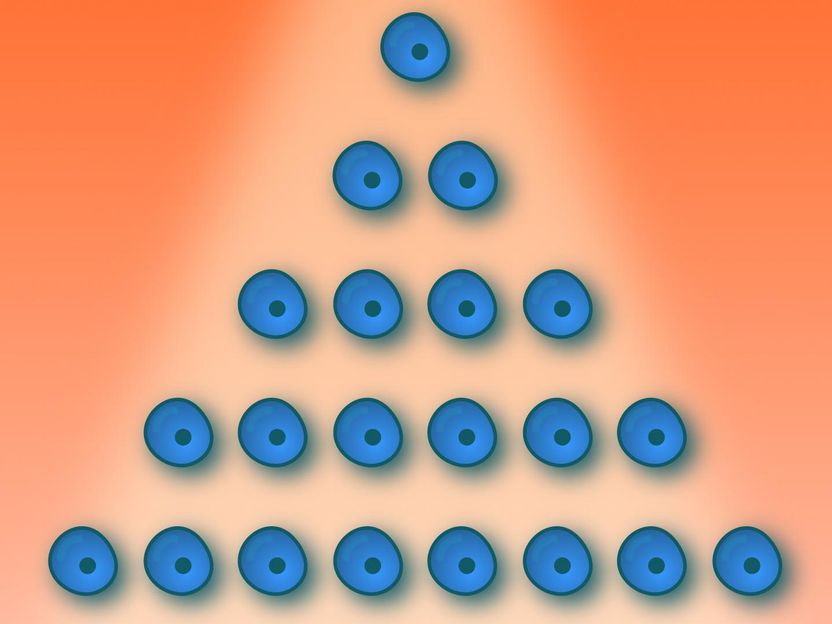DRAXIS Initiates Phase II Clinical Trials of INFECTON
Diagnostic radiopharmaceutical for imaging infection moves to next stage of development
DRAXIMAGE Inc., the radiopharmaceutical subsidiary of DRAXIS Health Inc. has received Health Canada approval to initiate two Phase II clinical studies of INFECTON(TM), a novel radiopharmaceutical diagnostic imaging agent for detecting and determining the location of infection in patients with difficult-todiagnose signs and symptoms. The phase II studies follow the recent successful completion of a Phase I safety and dosimetry trial in Canada and previous clinical research outside North America coordinated by the International Atomic Energy Agency.
INFECTON combines the widely used antibiotic, ciprofloxacin, with Technetium (99mTc), the most commonly used radioisotope in nuclear medical imaging. The INFECTON(TM) Kit for the preparation of 99mTc-ciprofloxacin is a diagnostic radiopharmaceutical that has the potential to selectively distinguish infection from inflammation by binding directly with an essential component of the bacterial DNA replication system.
The first of the two Phase II studies is a single-dose, open-label, multi-centre trial involving 30 diabetic patients suffering from clinically confirmed bacterial infections of the foot. Enrollment will begin in August 2003 and the study is expected to be completed by the end of 2003. The principle investigator is Dr. Raymond Taillefer at Hôpital Hotel-Dieu, Centre Hospitalier de L'Université de Montréal. The primary objective of this study is to examine the extent of uptake of INFECTON in diabetic patients with documented infections of the foot.
The second study will examine and compare the uptake of INFECTON in patients either with known soft tissue infections or chronic inflammatory conditions. A total of 50 patients with definitive bacterial infection or confirmed chronic aseptic inflammatory condition will be enrolled in the single-dose, open- label, multi-centre trial. Enrollment in this study is expected also to begin in August 2003 and continue into the beginning of 2004. The purpose of this second study is to describe the time-dependent imaging characteristics of INFECTON and determine the potential to distinguish between an area of infection and an area of inflammation based on kinetics and imaging patterns.
"These two Phase II studies will provide the necessary proof of concept for the further clinical development of INFECTON as an imaging agent for detecting bacterial infections," said Dr. Richard Flanagan, President of DRAXIMAGE Inc. "The INFECTON(TM) Kit has the potential to replace several existing imaging procedures that are non-specific for infection, including white blood cell imaging, which is not only complex but also involves some risk in handling human blood."
Despite drawbacks, there were over 70,000 white blood cell procedures in 2000 in the U.S. and sales of the agents for this procedure alone were estimated by Bio-Tech Systems, Inc. to be in the range $20 to $22 million. It is anticipated that INFECTON will be useful for imaging infection in several serious medical conditions such as fever of unknown origin, osteomyelitis, pneumonia, tuberculosis, wound infection, abdominal abscess, equivocal appendicitis and opportunistic infections in immune compromised patients.
The Phase I study of INFECTON conducted in Canada during the first half of 2003 examined product safety, pharmacokinetic parameters and radiation dosimetry in normal healthy volunteers. INFECTON was found to be safe and well tolerated by the subjects at the administered dosages. The results of the study provided baseline standard information on the normal distribution pattern of INFECTON in the absence of infection.
INFECTON has previously been studied in a multi-centre clinical research project involving a series of 879 patients and co-ordinated by the International Atomic Energy Agency. The results of the project were encouraging and were characterized by high sensitivity and specificity for the detection of bacterial infection in a large variety of infectious conditions.
Other news from the department research and development

Get the life science industry in your inbox
By submitting this form you agree that LUMITOS AG will send you the newsletter(s) selected above by email. Your data will not be passed on to third parties. Your data will be stored and processed in accordance with our data protection regulations. LUMITOS may contact you by email for the purpose of advertising or market and opinion surveys. You can revoke your consent at any time without giving reasons to LUMITOS AG, Ernst-Augustin-Str. 2, 12489 Berlin, Germany or by e-mail at revoke@lumitos.com with effect for the future. In addition, each email contains a link to unsubscribe from the corresponding newsletter.






















































